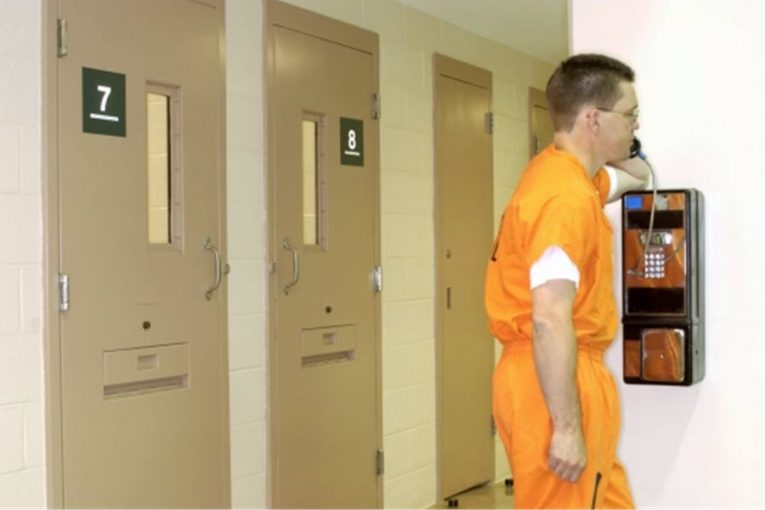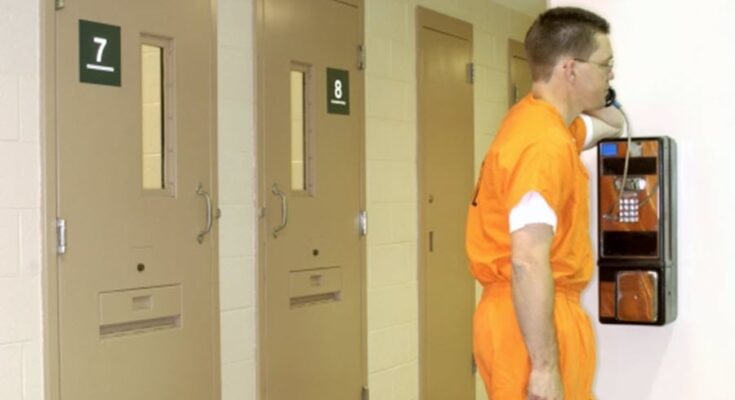
GettyImages-86485205
SACRAMENTO, Calif. – In a move that advocates are calling a betrayal of working-class families, the Federal Communications Commission has postponed long-awaited rules that would have dramatically lowered the cost of prison and jail phone calls for at least two more years.
The rules, passed unanimously in 2023 under the authority of the Martha Wright-Reed Just and Fair Communications Act, were meant to put an end to the practice of charging incarcerated people and their families exorbitant fees just to stay in touch.
But last week, the FCC announced that full implementation would be pushed to April 2027, sparking outrage from justice advocates.
“The FCC is shielding a broken system that inflates costs and rewards kickbacks to correctional facilities at the expense of incarcerated individuals and their loved ones,” said FCC Commissioner Anna M. Gomez in a sharply worded dissent.
At the center of the backlash is what the Prison Policy Initiative calls a capitulation to the financial and political interests of sheriffs, jails and prison telecom companies, all of whom stand to benefit from a system that generates revenue from human connection.
The organization condemned the delay, warning that it opens the door to industry lobbying that could water down the original reforms.
Under the old system, which remains in place at many facilities, families often pay $1 per minute or more for a simple phone call.
That adds up quickly for the millions of people in jail or prison, many of whom are held pretrial or serving short sentences but are effectively cut off from their families unless they can afford to pay the rates.
These prices aren’t just high due to technical overhead.
In many cases, telecom providers like Securus and GTL offer kickbacks to jails and sheriffs in exchange for exclusive contracts, argues the Prison Policy Initiative.
These commissions incentivize jails to choose the provider that offers the biggest payout — not the best deal for families, it contends.
The FCC’s 2024 order banned most of these kickbacks, triggering resistance from some corners of law enforcement.
In particular, the sheriff of Baxter County, Arkansas, publicly declared that his jail would stop offering phone calls altogether rather than comply with the new rules.
Other sheriffs and prison telecom companies claimed the lower rates would force them to scale back services like call monitoring — even though the 2024 order allowed for alternative funding mechanisms.
The pushback hasn’t stopped at threats.
A group of Republican state attorneys general sued the FCC, arguing that the lower rates would jeopardize public safety and hinder investigations.
Though the FCC addressed these concerns in its 2024 order, language from the lawsuit has since resurfaced in the Commission’s recent decision to delay implementation — a signal, advocates say, that the FCC is bending to political pressure.
The Martha Wright-Reed Act, named after a grandmother who spent years struggling to afford phone calls with her incarcerated grandson, passed Congress with rare bipartisan support.
The law directed the FCC to rein in what it called “unjust and unreasonable” communication rates in prisons and jails.
However, instead of enforcing those protections, the FCC is now granting facilities with existing contracts a multi-year grace period — effectively delaying reform and giving some jails an opportunity to roll back rate reductions they had already implemented.
The law also clarified the FCC’s authority to regulate both in-state calls and video calls — areas previously exploited by telecom companies due to legal loopholes.
Advocates say this clarity was intended to end years of industry evasion and misinformation, but the delay now threatens to prolong high video call rates and roll back progress on curbing abusive pricing practices.
The FCC’s own estimates projected that the 2024 rules would cut the cost of prison calls by roughly half, saving families tens of millions of dollars annually.
For many advocates, the Commission’s decision to postpone implementation undermines growing national momentum for reform and prolongs the financial burden placed on low-income families with incarcerated loved ones.
The Prison Policy Initiative warns that the delay gives telecom companies and correctional officials two more years to lobby for changes that could weaken the original rules.
With powerful financial interests now mobilizing against the 2024 order, advocates fear the final version — if it survives — may be far less protective than what Congress intended.
Categories:
Breaking News Everyday Injustice
Tags:
Commissioner Anna M. Gomez Congress Federal Communications Commission Justice advocates Martha Wright-Reed Act Republican state attorneys general Securus and GTL Sheriff of Baxter County, Arkansas The Prison Policy Initiative


